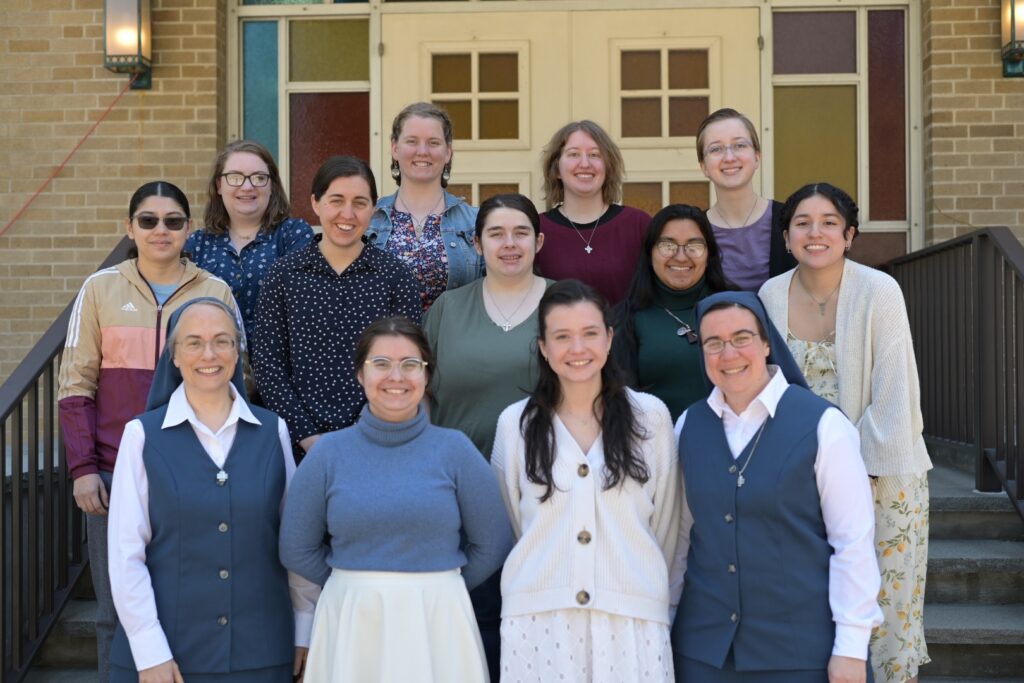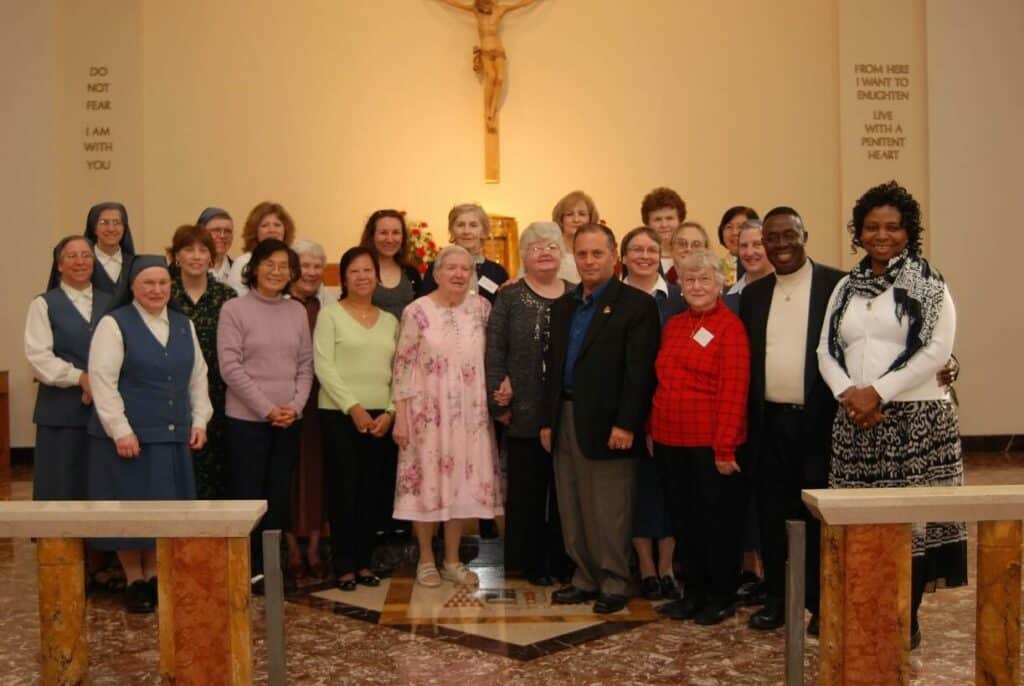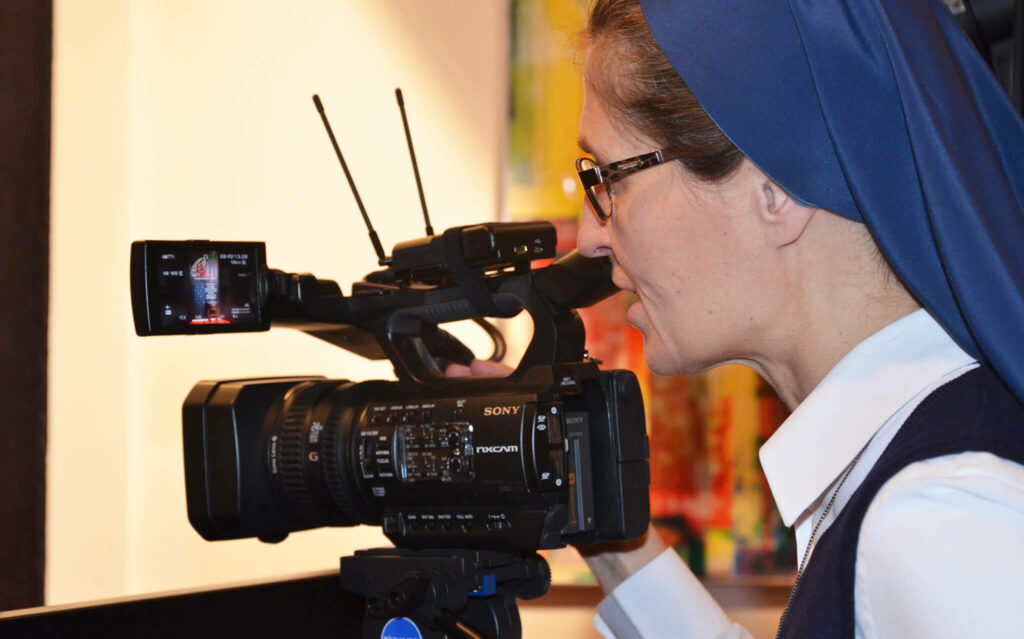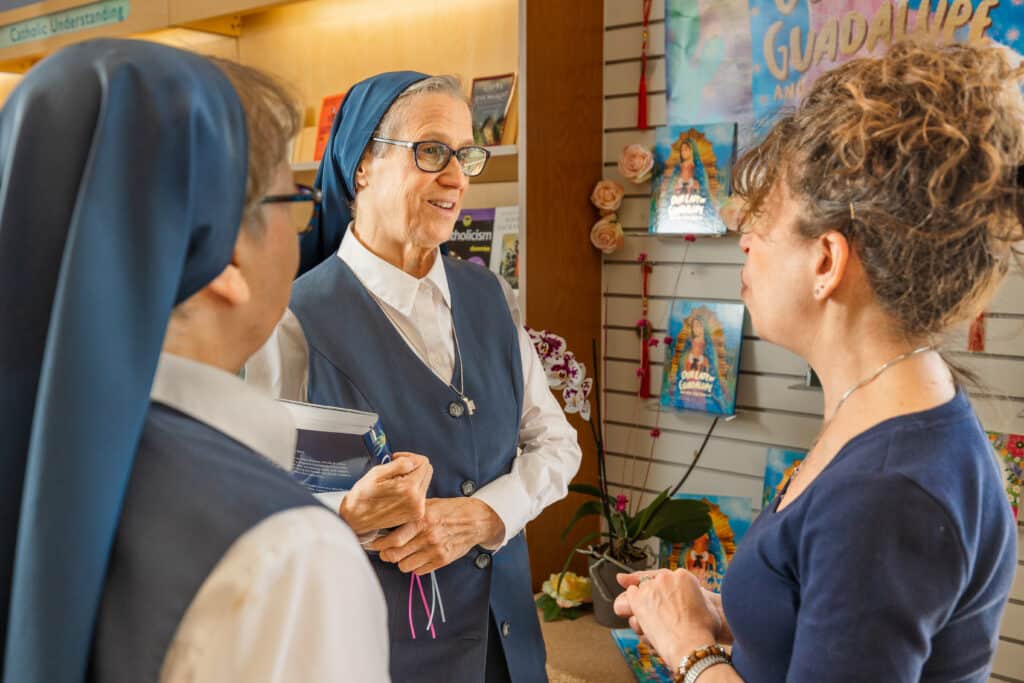Today we gather together on a special day for a special event. Feast of the Assumption – Dogma of the Church
House of Ephesus – Our readings speak of Mary’s journey – her constant journeying to God culminating in her Assumption.
The bronze relief on the death Door in St. Peter’s Basilica: used to exit after funerals – it depicts the deaths of Jesus, Mary, Abel, St. Joseph, Peter, and John XIII. Mary falls and the angels swoop in to catch her at the moment her soul leaves her body. She has given her all and she goes to her all. She totally lets go and literally falls into God.
Today’s Gospel speaks so much about that constant journeying of Mary’s and it also very much speaks to all of us of the journey that Carly and Chelsea have made, are making, and will continue to make.
In reflecting on Mary and her life, this day of her Assumption and her journeying to God, the Gospel chosen for this Solemnity, and this most beautiful moment of religious profession, I see a thread that is woven through all of it that can be summarized in three very important words: Fiat, Stabat, and Magnificat.
Fiat: This is the first Latin word of Mary’s response to the Angel Gabriel: Fiat mihi secundum verbum tuum: “Let it be done to me according to your word.” Fiat speaks of Mary as a woman of faith and of surrender to the God who draws close to her and invites her into a most special relationship. With her Fiat, Mary invites God to literally fill her and give her life – the life of Christ within her – the living God present in her and growing within. She agrees to give God her human nature in order that His Son can come into the world. Carly and Chelsea are doing the very same thing here this morning in a most profound way.
Stabat: This is the first Latin Word in the medieval hymn sung during the Feast of the Sorrowful Mother and is often sung on Good Friday during the Stations of the Cross: Stabat Mater dolorosa, iuxta crucem lacrimosa dum pendebat filius. Stabat. It means “stood.” “The sorrowful mother stood by the side of the cross weeping while her Son hung upon it.” It is a word that speaks so strongly of Mary as a woman of compassion and fidelity. Wherever there was pain or need (especially for love – love with passion), there is Mary. There she stands and is found. She stood there at the cross, she is present with compassion, love, and service to her elder cousin Elizabeth; we see her assisting the couple whose wedding in Cana ran out of wine, and she is present being ever the mother and teacher to the disciples at Pentecost and beyond. By making this public profession of vows, Carly and Chelsea are also proclaiming to God and to us that they desire to be woman of compassion, of service, of love – a love that expends itself and one that burns brightly even when it can cost deeply. It is a courageous stance – it is Stabat.
Magnificat: This of course is the first Latin word in Mary’s great hymn of thanksgiving during her initial encounter with Elizabeth in the visitation: “Magnificat anima mea Dominium:” My soul magnifies the Lord.” I much prefer to use the word magnify versus proclaims. Explain. Mary’s souls radiates and communicates the wonder and the joy, as well as the hope and the trust that swell up, overflows, and permeates her entire inner being. Carly and Chelsea have experienced this and they also radiate the reality that is permeating their inner being. Just look at them – could they look any more excited and happy?! Like Mary, they wonder at how God deigns to look upon their littleness, how he looks on all of our littleness and fills us all with such good things that we can’t but help to cry out and rejoice in the blessedness that only He can bestow and does bestow.
Fiat, Stabat, Magnificat. These are Mary’s words and Mary’s experience. These are also, truly, Carly’s and Chelsea’s words and experience. My dear sisters, today, you are standing here (Stabat) and with magnanimous heart (Magnificat) you are proclaiming your yes (Fiat) to God. By your vows, you make a breathtaking act of surrender to Him who created you, Him who redeemed you, and Him who gives you your life’s breath in order to make this total oblation and gift of yourself. As you follow this journey of the movement of your hearts and as you pronounce your vows of poverty, chastity, and obedience you are actually saying to Jesus, your Divine Master: No wealth but yours, No love but yours, no will but yours. Totus Tuus: I am completely yours. On this day especially, be like Mary in that bronze relief and allow yourself to totally fall into the hands, the arms, the very heart of God and then afterwards, live out of that total fall. In this you will be tested. Explain
Finally, I was most grateful to read the reflections that you sent to Sr. Mary Leonora on the choice of your vow names. By it I was reminded of the great St. Teresa of Avila and an experience she had on the day after her religious profession. As you know she chose as her name, Teresa of Jesus. As you may know, the day after the profession of her vows, while walking in the cloister of the convent’s religious enclosure (where no one but the sisters were allowed and had access), she came across and met a young boy of about twelve. Before she could ask who this intruder was, he asked her: “What is your name?” She of course answered: “I am Teresa of Jesus.” Then she asked him: “Who are you?” The boy smiled and answered: “I am Jesus of Teresa.”
From this true occurrence my dear sisters Carly (Paula) and Chelsea (Bethany) remember that you are not the only ones making a commitment here today. The Lord of Love who is your heart’s deepest desire, is also, and even more deeply, committing himself to you. Today by pronouncing your vows, you will forever be Carly of Jesus and Chelsea of Jesus. Indeed, be Jesus in the world today. Be Jesus to everyone that you meet and encounter. Bring Jesus into all that you do and say and in all that you are. Allow me now to end with the words found in the beginning of Gabriel’s words to Mary: “Be not afraid.”






